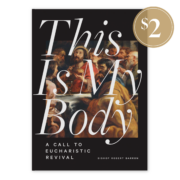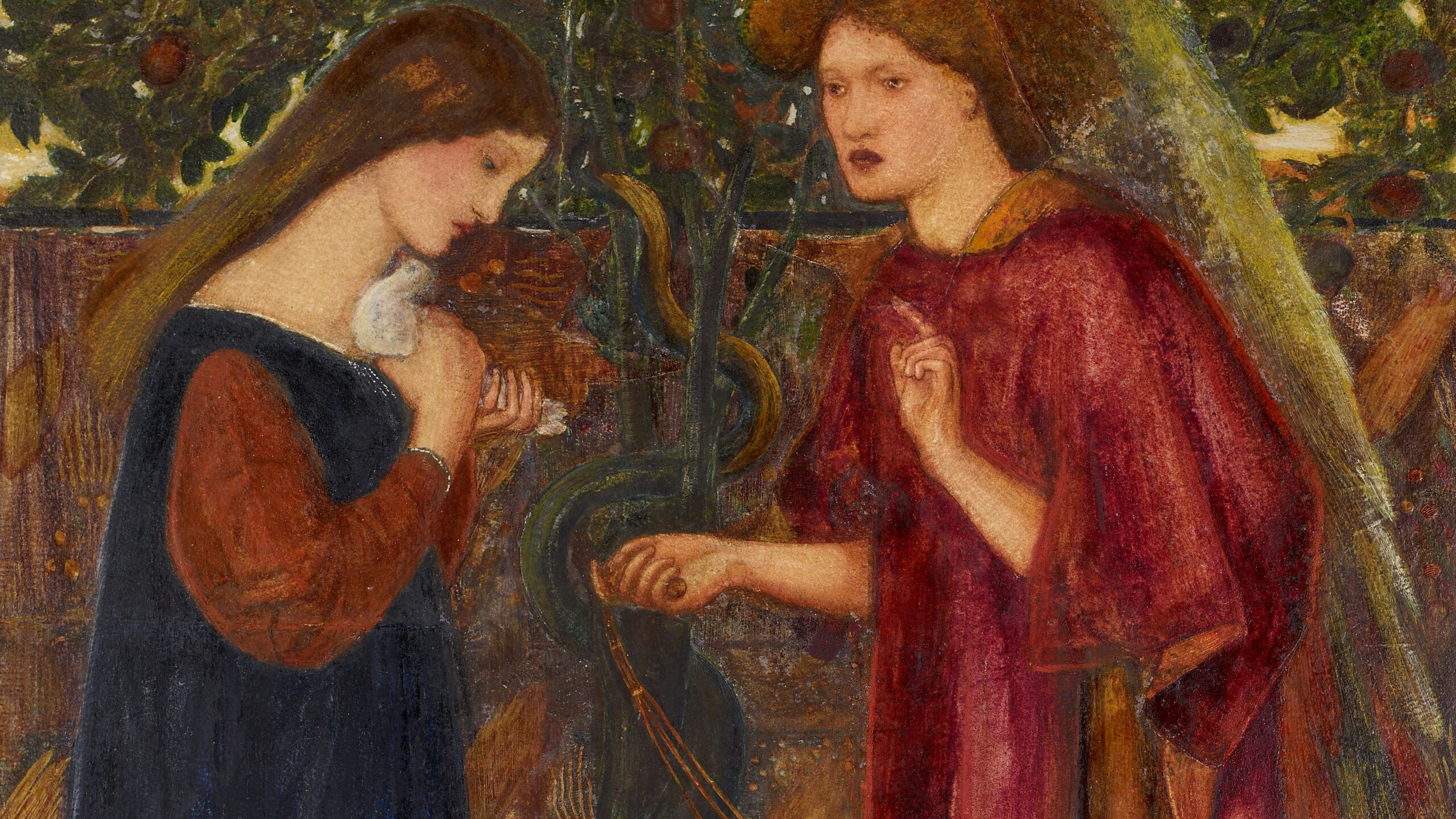The Angel of the Lord declared unto Mary:
And she conceived by the Holy Spirit.
The Solemnity of the Annunciation of the Lord is celebrated by the Catholic Church on March 25—exactly nine months before the Nativity of the Lord in December.
Why do we bother? Why do Catholics insistently recall this singular moment and make such a big deal over it—even recalling it week after week (sometimes day after day) in the praying of the Rosary—when many non-Catholic Christians barely consider the Annunciation, except, perhaps, in the run-up to Christmas?
Well, we make a point of remembering this day because this single moment of encounter between the young Mary and a messenger of the Almighty contains within it the first and foremost lesson of Christianity, the one around which every other lesson whirls: Our salvation hinges upon our consent to being saved. And this is a consent that must be given over and over again, day-by-day, sometimes minute-by-minute. Just as God’s own intention—his own great Word of assent—was necessary for the creation and sustained expansion of the universe, so was Mary’s “yes” necessary to its salvation.
In Genesis, we read that God said, “Let there be . . . ,” and from that was brought forth light and all creation. In the Gospel of Luke, it is the begraced, created creature who says the word: “Yes.” Mary said, “Let it be . . . ,” and from that was brought forth the light of the world (Luke 1:38; John 8:12).
Behold the handmaid of the Lord: Be it done unto me according to thy word.
“Yes . . . ”
“Be it done . . . ”
“Let it be . . . ”
These are the words that permit life rather than refuse it. Creation and sustenance are born of positive assent, of pure affirmation.
“God created us without us, but he will not save us without us,” wrote Augustine in one of his sermons, and the Annunciation demonstrates this, fully.

While today we remember the Annunciation in a special way, the Church puts this great truth and ever-instructive mystery before us constantly by recommending the daily recitation of the Angelus, whose words continually bring us back to the beginning, to that first and primary lesson, for our continued instruction—the reminder that our every yes keeps us on a God-directed path. And then it does something else. It plops us right into a mystery that is imponderable and yet ever-pleasant to dwell upon:
And the Word was made Flesh: And dwelt among us.
To remember the Incarnation every day is also to remember the Passion and death of Christ Jesus every day, which is also to remember that there is nothing we suffer in life that God himself did not consent to suffer as well out of sheer love for us, in his “mad eros of the cross.” It is, finally, to remember that this love, this consent, this profound “yes,” has conquered all, which means we are—with every surrender, every “yes” of our own—made continually free in Christ.
It is, finally, to remember that this love, this consent, this profound “yes,” has conquered all…
How grateful I am that our Church encourages the daily refreshment that is found in recalling the Annunciation, because in that brief pause of prayerful remembrance, there is an invitation to continual immersion in transcendent light and life. To rise in the morning with the words of the Angelus on our lips, “The Angel of the Lord declared unto Mary . . . ,” and then to repeat them at noon, and at six, and again upon retiring, or to use those words while announcing the Joyful Mysteries of the Rosary, is to be continually drawn back to what, within our reasoning, seems impossible and is yet real, and true, and salvific. In this way, our perspective is trained toward Christ, and heaven, and the long view of things.
One antiphon in the Office of Readings urges us, “Surrender to God, and he will do everything for you.” Each time I encounter it I am shocked, because it seems such a bold statement, and one that also seems just a bit too easy, doesn’t it? Like something a salesman or a politician might say: “Vote for me, and I will do everything for you.”

Except then I remember that in God’s case, it is true; the more we surrender to God’s purposes, the more we consent to give up our own will, the more we assist in the propulsion of God’s will in our lives, which is really all about cooperating with his purposes for the good of the whole world.
Behold the handmaid of the Lord: Be it done unto me according to thy word. . . .
And the Word was made Flesh: And dwelt among us.
From that, all else follows. That is why, even when it is sometimes difficult—even when I am tempted to fling myself headlong into my own fallenness and just wallow in it like a spiritual wanton—I consent to obedience and could never be anything but a Catholic. Because Catholicism is constantly calling us to remember who we are, recall our roots, and enter into the mystery of it all—of creation and consent and suffering and love. Day-by-sometimes-brutal-day. Minute-by-sometimes-glorious-minute, our salvation hinges upon our consent to being saved. Say yes.
Pray for us, O Holy Mother of God, that we may be made worthy of the promises of Christ.
